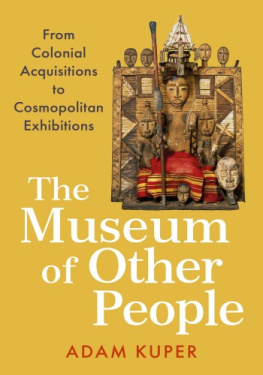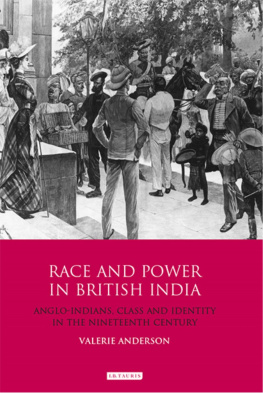Race,
Class &
Power
Race,
Class &
Power
Ideology and Revolutionary Change in Plural Societies
Leo Kuper
With a new introduction by Troy Duster
First published 2009 by Transaction Publishers
Published 2017 by Routledge
2 Park Square, Milton Park, Abingdon, Oxon OX14 4RN
711 Third Avenue, New York, NY 10017, USA
Routledge is an imprint of the Taylor & Francis Group, an informa business
Third printing copyright 2009 by Taylor & Francis.
Copyright 1974 by Leo Kuper. Chapter 9 1971, Unesco.
All rights reserved. No part of this book may be reprinted or reproduced or utilised in any form or by any electronic, mechanical, or other means, now known or hereafter invented, including photocopying and recording, or in any information storage or retrieval system, without permission in writing from the publishers.
Notice:
Product or corporate names may be trademarks or registered trademarks, and are used only for identification and explanation without intent to infringe.
Library of Congress Catalog Number: 2005052883
Library of Congress Cataloging-in-Publication Data
Kuper, Leo.
Race, class, and power : ideology and revolutionary change in plural societies / Leo Kuper ; with a new introduction by Troy Duster.
p. cm.
Originally published: London : Duckworth, 1974. With new introd. Includes bibliographical references and index. ISBN 0-202-30800-6 (pbk. : alk. paper)
1. Race relations. 2. Revolutions. 3. Power (Social sciences) I. Title.
HT1521.K78 2005
305.8dc22
2005052883
ISBN 13: 978-0-202-30800-5 (pbk)
TO HILDA
There is something uncannily current, even refreshing in reading Race, Class and Power some three decades after its first release. The refreshing part is hardly a function of the intrinsically upbeat character of the topic. The world of racial and class divisions that Leo Kuper described in the middle 1970s was bleak. The apartheid regime in South Africa was deeply entrenched, dependent upon an openly oppressive subjugation of the black population. The Cold War was in full force and the two power blocs were using whatever means available to pit nations, religions, tribes, and regions with national aspirations against each other if it might serve their interests. Indeed, Rwanda, one of Kupers case study sites, would erupt apocalyptically into an epic tragedy of genocide.
In most parts of the globe, racial and class stratification seemed as normal as ineluctable. Many social scientists were searching for universal patterns and/or laws governing the possible social transformation of rigidly structured systems of social stratification.
Both for its global reach, and for its sophisticated deployment of a wide and rich body of social theory across several disciplines, Leo Kupers bold and broadly sketched monograph stands apart from other works of this period. He achieves a delicate balance between the search for general principles that might explain revolutionary movements for social change and a textured account of situated meanings that rendered each nations case study unhappy in its own wayto appropriate Tolstoy for tales of social change. That tension runs throughout the manuscript, but it is usually healthy, pushing both author and reader to explore and engage new sets of emerging questions that remain very much with us today. While the book now reads partly as a social history, it is mainly the analytic virtuosity that makes it so current. Today, Howard Winants The World is a Ghetto: Race and Democracy Since World War II is the closest we come to Kupers attempt, and success, at a global analysis of race and class in an international context. Winant is resetting the stage of strata conflict by positing a grand scheme, where race becomes the core concept of a master narrative for the social organization of worldwide stratifying practices. Kuper is more inductive, typically beginning his account at the local level, but ever expanding outward to try out parallels and analogies. If read side-by-side, there is both complementarity and continuity with these two manuscripts. In his own words, Kuper summarizes his central thesis:
My argument then is that racial [domination] is associated not so much with cultural differences between the races, as with particular perceptions of, or beliefs about, those differences, as they come to be elaborated in ideologies... (p. 28)
It follows that the main thrust of the book emphasizes the role of ideology in shaping political action, both by the dominant and controlling forces that would reinforce that domination, and by the political mobilization strategies of insurgents that would resist or attempt to challenge formal political power. Kuper moves from an astute analysis of the ideology of violent overthrowexpressed in the last works of Fanonto a consideration of the role of reconceptualizing and transforming the cultural meanings of ideas of subordinationfor instance, blackness reframed as beautiful in the black power movement.
As noted, Kupers discussions of the political situation in Rwanda and his analysis of relationships between the Tutsi and Hutu eerily set the stage for the massacres of the last decade. He moves effortlessly between the sociological literature (Gerth and Mills) to the anthropological classics (Gluckman), to the periphery of the psychological (R. D. Laing), with a writing style that is lucid and illuminating. While there are inevitable leaps across historical periods and national boundaries that will make this work the subject of vigorous contestation and debate, Kuper reemerges as a major figure in social science theorizing about race and class, and the work is a model of thorough and prodigious scholarship on a topic that remains vital to our age.
Troy Duster
New York University
The chapters of this book were written mostly over the last five years. They deal with situations of extreme racial and ethnic conflict, and seek to develop appropriate theoretical perspectives. My own deep commitment is to interracial co-operation in achieving radical change by nonviolent means. I am aware that there is a tension throughout between this commitment and the attempt to confront some of the intractable realities of racial conflict, and that this tension is not resolved.
Inevitably over the years there has been some change of perspective, on such problems, for example, as the relations between race and class. I have, however, not attempted to eliminate inconsistencies in chapters already published, which thus offer slightly different perspectives on some of the issues, and I present them as originally published, with only very minor alterations. Translations have been added throughout for most French quotations. Some references have been harmonized and there is a single bibliography and index.
The research reported in this book has been supported largely by a grant from the National Science Foundation, and I would like to express my gratitude for this assistance, and also for help from the University of California, Los Angeles, and its African Studies Center. I would like to thank the research assistants who have helped me over the years: Sondra Hale, Arnold Green, Bob Edgar, Terence Freiberg and Anne Bailey. I am also grateful to colleagues who have contributed criticism of one or other of these chapters, or stimulated my thinking: Edna Bonacich, Howard Elinson, John Horton, Adam Kuper, Hilda Kuper, Neville Layne, Hans Rogger, M.G. Smith, Sam Surace, Andre Tiano and Ralph Turner.










